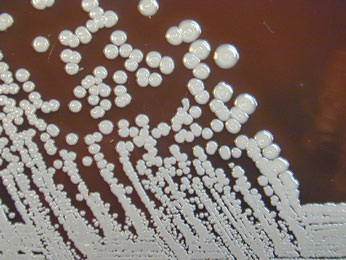The Mississippi State Department of Health – through a joint investigation with the Centers for Disease Control and Prevention – recently announced the discovery of an uncommon bacteria that causes melioidosis identified in Mississippi.
It is the first time the bacteria has been discovered in the United States.
Melioidosis is a rare disease caused by Burkholderia pseudomallei. These bacteria were identified in soil samples from the Gulf Coast of Mississippi.
The investigation was conducted because two individuals with melioidosis – both on the Gulf Coast – became sick two years apart.
Soil samples collected around the patients’ homes tested positive for the bacteria at the CDC. This indicates that bacteria from the environment was the likely source of infection for both individuals and that the bacteria have been present since 2020.
State Epidemiologist Dr. Paul Byers says most cases that occur in the US are because of travel to other countries where the bacteria have been known to normally occur.
“Typically, we see these bacteria in countries where the bacteria are endemic or where it normally occurs. Burkholderia pseudomallei normally occurs in tropical and sub-tropical areas like Southeast Asia or Central or South America. Because of the identification of this bacteria on the Mississippi Gulf Coast, persons at high risk for severe infection living on the Gulf Coast should take recommended precautions,” Byers said.
Melioidosis is an infectious disease and is caused by direct contact with Burkholderia pseudomallei in contaminated soil or water. Symptoms include fever, joint pain, and headache. Infection can lead to pneumonia and blood infections (sepsis).
Most healthy people who come into contact with Burkholderia pseudomallei never develop melioidosis.
Individuals living on the Gulf Coast who have chronic illnesses such as diabetes, chronic kidney disease, chronic lung disease, or excessive alcohol use may be at risk of severe illness from
infection and need to take precautions to protect themselves.
Those at risk should:
Avoid contact with soil or muddy water – especially after heavy rains.
Protect open wounds with a waterproof dressing.
Wear waterproof boots when gardening, doing yard work or agricultural work – it is critical to prevent infection through the feet and
lower legs (after flooding or storms).
Wear gloves to protect your hands when working directly with soil.
Follow MSDH by email and social media at HealthyMS.com/connect.
Staff report

Recent Comments